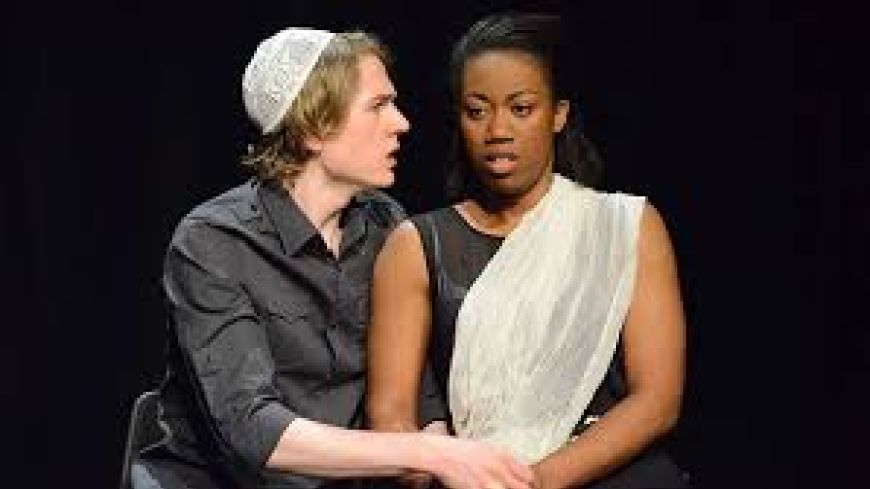
PromisKus Theatre is a collective of graduates from the new BA (Hons) Acting For Stage & Screen course at Napier and Queen Margaret Universities. For their Fringe debut, they are showcasing a ‘world premier’ entitled Lifting The Mask, the themes of which were explored and developed initially by the students and their lecturers, before enlisting the help of playwright Cameron Forbes to turn their ideas into a play.
Broadly, the play is concerned with stereotyping and with the habit we have of judging by appearances. More specifically it touches on the differences, between Britain and Africa, of attitudes towards homosexuality and the treatment by police of escort girls who are raped.
On one side of the stage there is journalist Craig interviewing escort girl Amy at a train station café in Scotland, and on the other there is Farid travelling through Africa. It is mentioned that Farid was born in Leeds to Iranian parents and now lives in Scotland; that Amy, who is black, was born in Wolverhampton, also now lives in Scotland and doesn’t look like a prostitute. To labour the, ‘don’t judge a book by its cover’ theme, Craig doesn’t think he appears gay.
Broad themes having now been outlined, it was down to the detail. When Amy quickly identifies Craig as a homosexual, he describes his coming out to his parents who, perhaps regretfully, nevertheless hug him and support him. Meanwhile in Africa, Farid witnesses police breaking down the door of the family he is staying with in order to arrest a homosexual man who lives there.
Similarly, in Britain the police are polite, if ineffectual, when Amy reports her rape, while in Africa escort girl Nina is arrested, possibly never to be freed, after reporting her own traumatic experience. Farid runs away from the social injustice he has witnessed in Africa, but returns to a Britain that is alert to the threat of terrorism and discovers that Britain thinks he looks like a terrorist.
These were complex themes depicted rather simplistically, noted but not discussed or explored in any depth. The plot was confusing, both in relation to time and place, as was the dialogue that was an attempt at naturalism sitting awkwardly alongside a breaking down of the fourth wall. Two of the three actors played multiple roles – and did it competently – but this switching didn’t allow the sketchily drawn characters to develop and therefore the audience to engage. Unfortunately, the performance held glimpses of promise but was ultimately muddled and left unresolved.
Runs 16, 18, 20, 22, 24 Aug, 2.30pm
£7.50 (£4.50)

